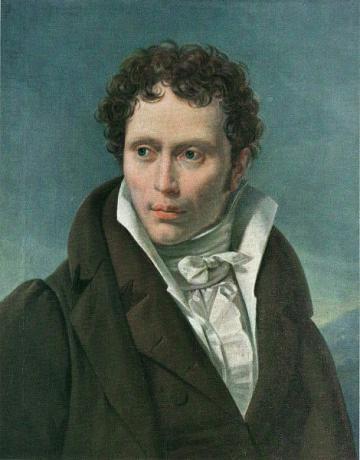Rhetoric, from the Greek rhêtorikê, means the art of persuasion through words. Spoken communication is the basis of social interaction and more than that, it acts as the fundamental element of policy.
Thus, rhetoric uses language efficiently, building an argument that seeks persuasion to influence deliberation and decision-making.
Persuasion and persuasion strategies are rhetorical skills that build a narrative, influencing the way in which reality is understood or interpreted.
The meaning of rhetoric and its importance in politics
Rhetoric was understood among the Greeks as the basic structure of law and politics, the "art of persuasion" was a fundamental issue for decision-making in Greek democracy.
Two basic principles guide democracy, since its emergence in ancient Greece until today: isonomy (equal rights to citizens) and isegoria (right to voice and vote).
Thus, the right to voice demanded, on the other hand, that Greek citizens possessed a great capacity of language to clearly and convincingly expose their perspectives.
Since then, politics has developed from the clash of ideas. Thus, rhetoric aims to convince the adversary or the public, based on the clear exposition of ideas and the ability to argue, being a fundamental point of political activity.
The importance of the sophists in the development of rhetoric
Rhetoric emerges in an organized and systematized way from the performance of the sophists, as a form of persuasion and persuasion. The sophists came to play an important role in the Greek political system.
By not believing in the existence of true knowledge, the sophistic perspective understood the truth as a perspective validated by efficient argumentation.
The sophist Gorgias defined rhetoric as:
persuade through speeches, judges in the courts, advisers on the council, members of the assembly at the assembly and at any other public meeting.
In other words, rhetoric was the foundation of what could be taken as truth, since from conviction a consensus is generated.
With this, the teaching of rhetoric came to be understood as a tool for political participation and as a fundamental art for the formation of citizens.
Rhetoric in Aristotle
Aristotle was a critical disciple of Plato, but their common point was the understanding of true knowledge. Like his master, he rejected the sophistic outlook, understood knowledge apart from mere consensual opinion.
However, for Aristotle, rhetoric, persuasion through argumentation, should be perceived as a fundamental technique for the policy, capable of demonstrating in a practical way the theses to be defended.
Three fundamental aspects support Aristotle's rant: ethos, pathos and logos.
- ethos it is an ethical principle that guides the argument.
- pathos it is the appeal to the feelings evoked by the speaker in his arguments.
- Logos it is the logical structure of the argument.
This triad that supports the argument, proposed by the philosopher, makes up what is currently understood as rhetoric.
The emergence of oratory and its difference from rhetoric
With the apogee of the Roman Empire, oratory appeared. Initially, oratory is rhetoric itself. However, over time, there is a distinction between the two.
Oratory is assumed to be good speaking, exposing oneself eloquently, more linked to linguistic and vocabulary skills. Rhetoric, on the other hand, remains centered on the idea of persuasion and argumentative persuasion.
See too:
- Dialectics: the art of dialogue and complexity
- Socratic Method: Irony and Maieutics
- What is Policy?
- What is Logic?
Bibliographic references
Aristotle. The Thinkers Collection. Translation by Eudoro de Souza. São Paulo: Abril Cultural (1984).
Chaui, Marilena. Invitation to philosophy. Attica, 1995.
Abbagnano, Nicola. Dictionary of Philosophy. 2nd edition. SP: Martins Fontes (2003).

